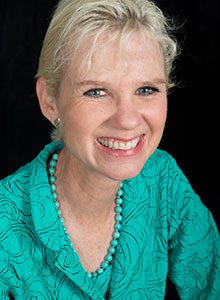Small Attitude Changes, Big Money Impact
 A fact of life they didn’t tell you middle school: You’ll likely be flying solo at some point during your retirement, if not at the start. “From the age of 65 to the end of life, most American women are single, and if they lost a partner, their standard of living drops,” says Kerry Hannon, a retirement and personal finance expert and author most recently of Love Your Job: The New Rules for Career Happiness. Yet on any given day, “women will talk about health before they’ll talk about wealth,” Hannon notes. Making financial security a priority in our thoughts—as well as a part of our conversations—is one attitude adjustment we all need to make. These five will also help ensure that the retirement years are truly golden:
A fact of life they didn’t tell you middle school: You’ll likely be flying solo at some point during your retirement, if not at the start. “From the age of 65 to the end of life, most American women are single, and if they lost a partner, their standard of living drops,” says Kerry Hannon, a retirement and personal finance expert and author most recently of Love Your Job: The New Rules for Career Happiness. Yet on any given day, “women will talk about health before they’ll talk about wealth,” Hannon notes. Making financial security a priority in our thoughts—as well as a part of our conversations—is one attitude adjustment we all need to make. These five will also help ensure that the retirement years are truly golden:
#1 Get self-centered
Nature or nurture, women tend to put the needs of others first, and as a result, we experience career interruptions that lead to our missing out on raises, years of contributions to employer-sponsored retirement plans and reported earnings that will affect the size of our Social Security checks down the line. To even begin to make up for the losses, “you need to pay yourself first—which means put money in savings before you do anything else with your paycheck,” Hannon says. And when it comes to opportunities at work, which that taking-care-of-yourself attitude could position you for a promotion and higher salary, “by all means, as Sheryl Sandberg put it, lean in.”
#2 Stop using fuzzy numbers
“You need a solid understanding of how much you spend now to determine exactly how much you’ll need later in life,” Hannon says. You also can’t make sure you’re living within your means unless you run real numbers. Hannon recommends going to Mint.com and YouNeedaBudget.com for help tracking your spending and penciling out a budget.
#3 Be bold about saving
Afraid that they’ll need the money, many people who participate in their 401(k) plans allocate just fractions of their paycheck to it. “But at the very least, you should be putting in the 4% to 6% that employers typically require to get the maximum company match,” Hannon says. “It’s pre-tax, so you’ll hardly miss it.” An even better target savings amount: 10% that you eventually dial up to 15%—or more, if you’re getting a late start.
#4 Invest with confidence
“While most women are completely comfortable dealing with their daily finances, many are intimidated by stocks and bonds,” Hannon observes. The only solution is to get educated about investing and retirement planning. Hannon recommends checking out Iinvest.org, WiserWomen.org, Learnvest.com and Dailyworth.com—the latter three specifically geared to women. It may also be helpful to have a professional explain things. If you do go the financial-advisor route, Hannon suggests hiring one that charges a flat fee. Interview a few (there are searchable databases at sites of the National Association of Personal Financial Advisors, the Financial Planning Association and the Certified Financial Planner Board of Standards), find one you like and don’t be timid about asking questions. It’s your money, after all.
#5 Look forward to your 50s
In order to keep on working and earning, many women shift career tracks as the nest starts to empty out, or a life or health crisis pushes them to find work with meaning or a job that they’re passionate about. “It often takes about three to five years to get something new going full speed, so at 50, you might start thinking about what you want to do when you’re 55,” Hannon says. “Begin to add the necessary certifications or degrees, research and even moonlight to see if it truly is something you want to do in this chapter.”
Also, since money is often the biggest stumbling block to changing careers—you may have to take a pay cut—you should “get financially fit, sock away savings, pay down debts and perhaps downsize your home,” Hannon advises. You’ll feel challenged during those transitional years but remember, “you’re not reinventing yourself; you’re redeploying the skills you already have in your kit. It’s also an exciting time, so go slow and take it in baby steps,” Hannon adds.
Finally, to get your friends to join you in thinking and talking about money matters, Hannon recommends adding personal finance books to your book club’s reading list. Her top picks: The Charles Schwab Guide to Finances After 50, Get a Financial Life and Jonathon Clements Money Guide 2015.
Kerry Hannon will be leading panel discussion “Reviving a Stalled Career” at the 2015 Texas Conference for Women.
READ MORE FROM THIS MONTH’S NEWSLETTER
Negotiation Tips That Work for Women
Best Reads for Staying on Top of Every Industry
From Rancher’s Daughter to….